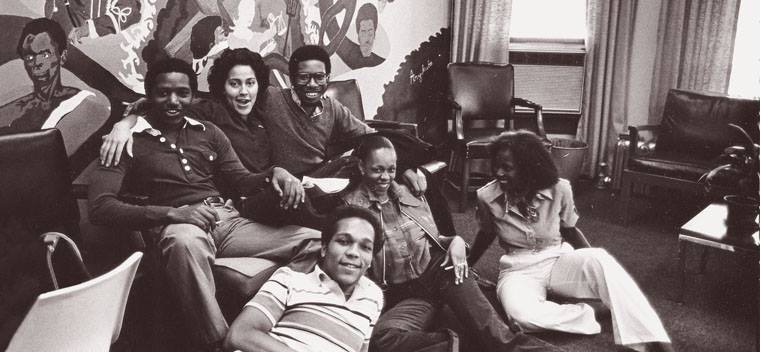EVANSTON - A rich and vital story spanning more than a century and encompassing civil rights struggles, great scholarly works and trailblazing professional achievements, Black history has long held a special place at Northwestern University.
The stories of Black people and organizations at Northwestern will soon have a permanent exhibition space as well as a dedicated archivist whose primary responsibility will be to document the lives of Black students, faculty and alumni.
Northwestern University Libraries has announced that Charla Wilson, the first Archivist for the Black Experience, will join the Libraries staff on July 1. Materials generously donated by Northwestern alumni will be used in exhibits in University Libraries and at the Black House, where major renovations are planned to incorporate reimagined spaces to celebrate Black culture and the community.
The creation of the new position is part of a University initiative to document the history of Black students, faculty and organizations at Northwestern. It also reflects the vision of the Northwestern University Black Alumni Association (NUBAA), a key partner with the libraries, both in developing the archivist’s new role and connecting with alumni who might be willing to contribute materials to the expanded archives.
“The hiring of an archivist for the Black experience signals Northwestern’s acknowledgement and celebration of the longstanding contribution of Black students, faculty and staff who have helped make this University the wonderful and diverse place it is today,” said Dr. Jabbar Bennett, associate provost and chief diversity officer at Northwestern.
NUBAA, which advocated for the creation of the new position, has already started collecting its own materials and others to illuminate the Black experience at Northwestern. Wilson will shepherd and expand the University’s holdings.
“Time is of the essence in terms of chronicling these legacies,” said NUBAA President Jeffrey Sterling. “We will have a living, breathing archive that helps encourage and motivate students, community members and alumni to engage with Northwestern and support each other.”
Sterling is looking forward to the completion of planned renovations of the Black House, itself a central element of Black history at Northwestern.
Black House was established in 1968 following the Bursar’s Office sit-in, through which students called for the creation of an African-American studies program and an on-campus space for Black students. Next year will be the 50th anniversary of the sit-in.
The reimagined Black House will serve as a community and cultural center, in addition to a student center. It will include a room dedicated to exhibits featuring Black alumni.
“Northwestern has taken a bold step,” Sterling said. “The willingness of the University to examine and learn from its history and to do what it can to add to the shared narrative of America is truly inspiring.”
An archivist, historian and librarian, Wilson said the NUBAA collection promises insights into the lives, struggles, campus influence and accomplishments of African-Americans over the course of Northwestern’s history.
She has experience in collection acquisition and digitization, arrangement and description of records, and manuscripts, public services, oral history, exhibit design and public programming around historical collections.
Wilson was most recently employed with the Barona Cultural Center and Museum of California. Prior to that, she was a library, archives and museum collections manager at the Women’s Museum of California.
Wilson holds a degree in American studies, with course concentration relating to African-American history and culture, from Scripps College. Her graduate degrees are from Claremont Graduate University and from California State University San Marcos (CSUSM).
“Not only will this collection tell the stories and experiences of African-American students, faculty and staff, but it also will broadly enrich the history of African Americans in the Midwest, Illinois and in higher education,” Wilson said.
Indeed, preserving and exhibiting the stories of Black alumni will have impact that reaches far beyond the University as well as Evanston city limits.
“Chronicling the history of Black people at Northwestern honors their presence at our institution and solidifies their role and legacy in the often untold but full story of the American experience,” Bennett said.


